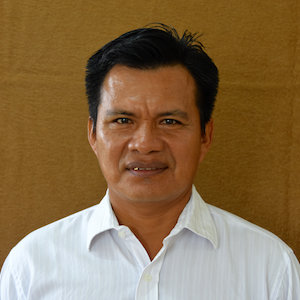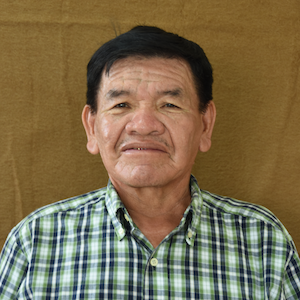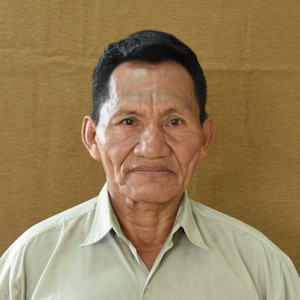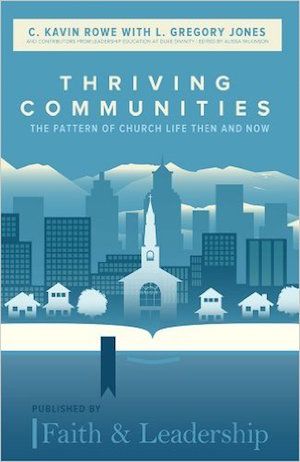Our Mission
RiverWind Inc is a Christian nonprofit ministry organized and registered with the Internal Revenue Service of the United States as a 501 (c) (3) nonprofit religious charitable organization. That defines RiverWind's legal status; it means RiverWind is a tax-exempt organization, allowed to receive charitable contributions from individual donors and and organzations under the laws of the United States.
More importantly however, RiverWind is a Christian ministry working with and among indigenous peoples in the Amazon Basin of Peru, in South America. We endeavor to follow the teaching of Jesus to be "the salt of the earth…and the light of the world" (Matthew 5:13-16); to love not only our neighbors but also our enemies (Matthew 5:43-44); to pray as Jesus taught us to pray: "Our Father in heaven, hallowed be your name, your kingdom come, your will be done, on earth as it is in heaven" (Matthew 6:9-13); to comfort the mourners, join those who hunger and thirst for God's righteousness, to be people of mercy, peacemakers and pure in heart.
to equip leaders
While all cultures retain at least some measure of created human dignity, they also inculcate sub-human beliefs and behaviors. As in the stories of the Old Testament, as well as the mission of Paul to the Gentiles, God's Story always collides with such cultures, ecnouraging what is good and challenging what is wrong. Leaders must learn how to lead with distinctly Christian values, growing out of the stories of the Old and New Testaments.
Leadership likewise is culturally conditioned, whether passed on through family, acquired by power and force, or elected by followers. Leadership in God's called community is different. Leadership in the church is a matter of spiritual gifting, as we noted earlier. The mark of a leader in the church is a servant attitude; where our societies encourage upward mobility, leaders in the church follow the path of downward humility, after the example of Christ Jesus (Philippians 2).
to engage communities
World Bank data tells us that as of 2014, the annual per capita GDP of the U.S. was $53,785. On average, each Peruvian earns less that 8% of what a U.S. resident earns each year, $4,151. And, most astonishingly, rural residents of Peru earn 1.7% of Peru's per capita GDP, or $70 annually. As a result they squander their inheritance, selling their pristine forest hardwoods to North America or Asia. They cultivate plants that are turned by narco-traffickers into drugs for overseas markets and addicts. They feed their families by fishing, farming and hunting, so long as the jungle has not been clearcut for gold mining and the rivers poisoned by contaminants.
RiverWind recruits and receives mission teams - medical, dental, teachers, seminar leaders, construction workers, others - to spend a week or ten days with us in remote jungle villages, conducting medical clinics and providing medicines, providing school materials and backpacks, teaching small business seminars, building churches, taking one small step at a time to help indigenous communities better their circumstances.
to encourage churches
A prominent New Testament scholar and student of The Acts of the Apostles, C. Kavin Rowe, speaks of the need for churches to be thiving communities, after the pattern of the 1st century churches described in Acts. He asks, "What makes a community thrive? As Christian leaders, we tend to assume we already know what thriving communities are; we then simply go looking for instances in Scripture that confirm our knowledge and agenda. Over time, we cease learning from Scripture how to think and instead use it as a tool to back up our cherished beliefs.…"
"Acts offers us", Rowe asserts, "six features of a pattern of life in thriving communities -- not a 'to do' list but a picture of what the church needs to continue being the church."
- Networks and networking: e.g., Jerusalem with Antioch, Philippi with Jerusalem, Ephesus with Rome
- Visibility, or - as Rowe notes, "witness"
- Providing for the weak (integral and internal to…[the identity of the] church
- Processing disputes and conflicts
- Articulate belief - knowing what and why we believe
- Suffering - e.g. Steven, Peter, Paul - after the pattern of the Messiah
For more on thriving churches, click on this link, or download the Kindle edition of C. Kavin Rowe's book, Thriving Communities at www.amazon.com.
Paul's mission was formed in what may arguably the pattern of such a community, the church at Antioch (Acts 11:19-30, 12:25). On his missions he not only planted churches but returned to encourage them; he wrote letters filled with Christian principles and practices, filled with encouragement as well as caution. RiverWind's mission is to encourage churches to become thriving, albeit remote, communities in the Peruvian Amazon.
to esteem creation
Humans failed in their responsibilities (Genesis 3), resulting in a global disaster. The story is both long and deeply troubling, including disobedience, failure, conflict and violence, both within the individual human person and between communities. It has persisted throughout our human history, and has infected and affected all of God's created order.
Failure and conflict require peace-making and righteousness. God was not and is not finished with either his creative work, neither with humanity nor the global environment. We are still called to be stewards of creation, and he is bringing about a restored creation (Romans 8:18-27). RiverWind is committed to both announcing new life found in Jesus' resurrection (redeeming humanity) and good work expressed in restoring the created environment.
our history
While she was teaching in Lima, Victor Posada passed into eternity, into the presence of God. His funeral was held in Lima, attended by church dignitaries and expatriate missionary leaders. The pastor told Ruth that she was to give the eulogy for Victor. She felt both overwhelmed but unworthy to step into the pulpit and honor this great Peruvian missionary. But the pastor persevered: "This was Victor Posada's request." And so she spoke to those gathered about this great man and his role in her life. And God called her into mission with the indigenous, stepping into Victor's oversized shoes. Abandoning Lima, she returned to the jungle, researched and found teaching materials for Oral cultures, and began in 2003 to visit small, often isolated villages to tell the stories of God's Word.
Several years later, Ruth met and married Dick Robinson. (You can read their short biographies here.) In 2010 they began preparations to continue together Ruth's work teaching Orality in the jungle. While honeymooning in Colorado, they attended a young, growing church. The energetic and enthusiastic young preacher dared the congregation to dream prayers so improbable that only God could bring about an answer. Ruth prayed, quite specifically, that (1) God would allow her to obtain American citizenship, (2) that God would supply the necessary resources to expand the ministry in Peru, and (3) that God would allow them to found and grow a nonprofit organization to coordinate the ministry in the remote interior of Peru. In 2014, Ruth became a U.S. citizen, willing partners, prayer supporters and donors joined the cause, and RiverWind Inc was registered with the IRS. In December 2014, Ruth and Dick relocated full-time to Pucallpa, Peru to direct the work of encouraging churches, equipping leaders and engaging communities in the District of Tahuania, upriver on the Ucayali.





